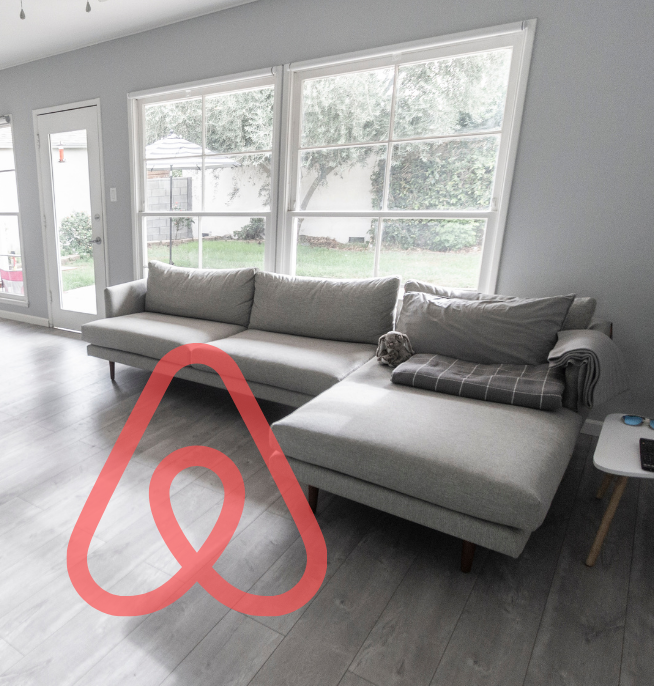Does defining your niche with utter confidence trip you up?
Do you feel a little resistance to niche down?
And worry about being stuck in one niche?
What if you don't like it, what if it's not the right niche, what if my niche market is too small?
I hear these objections to niching often! In a Clarity & Consistency Club meeting, we did a Q&A and all these questions came up. I uncovered a lot of resistance on the topic of niching down and how to find the right niche. So, if you're feeling a little stuck because you're not certain about what your niche is, buckle up because this is an important topic to unpack.
Let’s handle a few objections on the topic before we go in.
A few myths or fears around niching.
No, you don't have to stick to one niche forever. Once you've found a niche and you can make it work, you can move on to another one and another one, and that's how you scale.
If you start on the wrong niche, it's still better than trying to throw spaghetti at the wall to see what sticks. What is the data, what is the feedback telling you so you can learn and move forward?
If you niche down, I promise that you won't be leaving money on the table, you won't be leaving people out of your sales funnel. Being a generalist will not help you. It will be easier to sell the more specific you get and you will still attract people outside of your chosen niche who resonate with your values!
Here are 4 steps that will help you identify your niche and dial it in
Step 01 Your umbrella market
What market you are in? I'm going to help you out with a little something I learned from Russel Brunson, there are only one of three markets you can be in. Health, Wealth, or Relationships.
Let’s say you’re a dietician. Your umbrella market is Health. As you keep narrowing, you can say that you’re in Health > Nutrition. And you can go a step further and say you’re a vegan nutritionist or you specialise in diabetes.
Step 02 Narrow down 2 or 3 levels
By niching down and the narrower you go, you're positioning yourself as an expert in a specific pool. Think of it this way and this is a real conversation I've had at home. We have a Dachshund named Milo, if you follow me on social media, you've definitely seen how cute he is. What you haven't seen is how much naughty is packed into something that small. We were looking for a dog trainer at one stage. Not just any trainer, someone who can handle Milo. You see the more specific and experienced a dog trainer is with that breed, they are going to have less convincing to do, and we'll have less thinking to do around whether or not they can help us.
So with Milo in mind, if you're a therapist and you simply say you're a therapist - or even a health expert - that doesn't give me much to go on. If you're a mental health expert specialising in post-traumatic stress, I have more to hang onto. Maybe you're a health expert specialising in veganism and bodybuilding.
Step 03 Explore your niche
You can do a little research by way of a Google search and using search listening tools like Answer the Public. If stuff is coming up that's great, you have a market and there's nothing wrong with being second to market.
What I really want you to do next is to go take a look at your client testimonials, emails, and messages. Create a swipe file of all their words, what do your clients tell you? I’m talking about the things they thank you for, give you reviews and testimonials for, the transformations, or the results that you create for them. There is pure gold hidden in these words.
The research and the swipe file from doing a little review can be an eye-opener. You're looking for a market that's an inch wide and a mile deep to learn from and leverage for your business. The words that your clients playback to you will also help you to find your points of differentiation and help you stand out in your niche.
Start asking yourself how you can step up, what can you do better, how can you serve the niche better, how can you use your story (which is unique and can't be copied) to attract your ideal clients in your niche?
Step 04 Your stadium pitch
You now have everything you need to write your stadium pitch. This is your proposition statement, the thing that you want to be known for in your niche, and if you weren't in the room, what people would say when someone asks, "so what does Sian do?" Head on back to the episode called 'what are you known for?' to get focused on nailing your value proposition statement. You know me, I love frameworks, so there's a load in there to help you say with confidence who you help, what you do, and why it's important or the results that you get.
Here's an example :
"I coach creative entrepreneurs and agency owners to crack the growth code to getting and keeping more clients so they can quit the job they own and grow their income for that freedom they set out to enjoy.”
Isn't that heaps better than saying, 'I'm a business expert', or, 'I'm a business coach? There’s more to hang your hat on.
I will promise that this won't be easy, you won't get it perfectly nailed the first time, and when you test it out you'll want to tweak and refine it. The important thing is to get more clarity around these areas and take action. I promise that it’ll be worth it.
If you've ever presented a pitch to a client or had someone say, 'it's like you read my mind', then you'll know what it will feel like when you've really nailed your niche.
I talk about this topic often because I know how much of a sticking point it is. Once you nail your niche and you can craft an utterly irresistible offer, your results and your life will change.
If I can help you nail your niche and provide the tools, techniques and frameworks to attract Clients Like Clockwork®, drop me an email to hello@workwithsian.co.uk with the word 'clients' and I'll do the rest.



